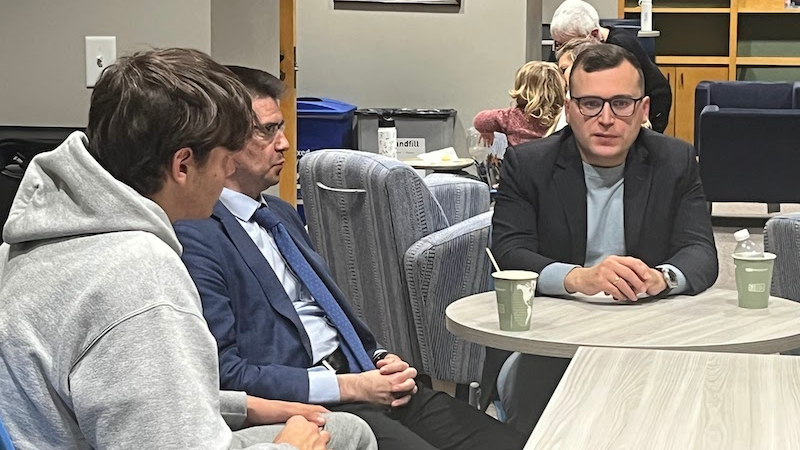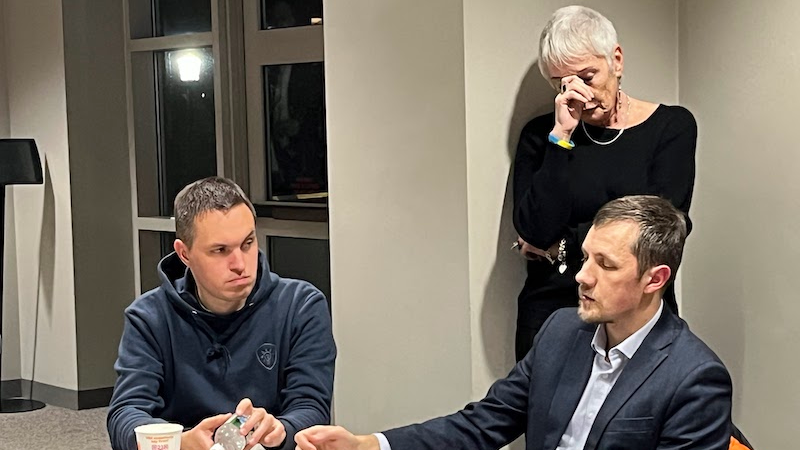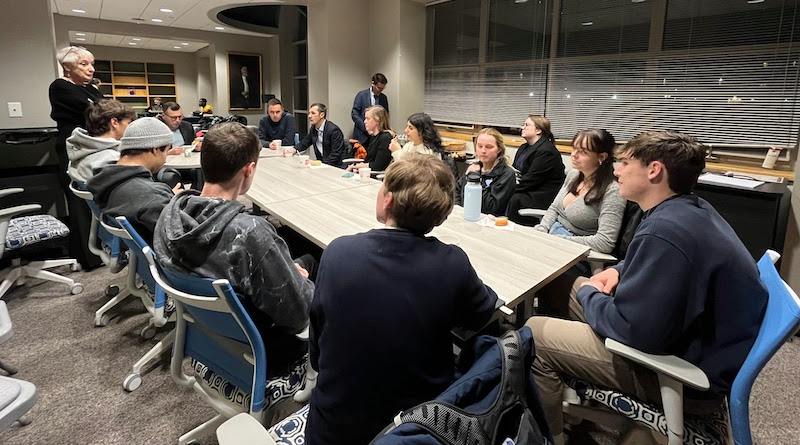An Evening Soiree with Russian Visiting Scholars
By Sarah Baughn, MALD 2023 Candidate, The Fletcher School
On November 16, 2022, visiting scholars from the Fletcher Russia and Eurasia Program convened to share their experiences with Russian language learners at Tufts University. Through a lively exchange in Russian, they discussed their career aspirations, research interests, and experiences in the United States.
The speakers included Pavel Luzin, Oleg Shakirov, Yuri Nadtochey, and Andrey Todorov, who all came to The Fletcher School as scholars in residence after the war broke out in Ukraine. A few have since left to return to their home countries or to move on to other opportunities in the United States.
Luzin kickstarted the discussions, emphasizing his research on Russia’s foreign policy and defense, space policy, and global security issues. He discussed the current state of Russian aggression in Ukraine, the necessity of analyzing the effects of American sanctions on the Russian military, and socio-cultural problems in Russian society.

Oleg Shakirov discussed his expertise in international cyber policy, Russia’s foreign policy, and modern diplomacy. During the session, he spoke about his research into the history of Russian and American negotiations related to cybersecurity. He highlighted how the field feels new but is also old in many ways, because the discussion of cybersecurity and bilateral relations between Russia and the United States has been going on for over two decades.
Andrey Todorov introduced his research, which focuses on Arctic Ocean governance and the international Law of the Sea. Todorov’s current work is related to the legal status of the waters of the Northern Sea Route in the Arctic and the political implications of the 60-year-old dispute between Russia and the United States.
Finally, Yuri Nadtochey spoke about his experience as an associate professor at the Department of World Politics at MGIMO University, teaching courses on the theory and history of international relations. He initially specialized in European-Russian security relations, with a focus on NATO’s relationship with various security systems throughout Europe. He further discussed the fact that modern weapons allow states to easily overcome their borders and therefore it is very difficult to retain the concept of national borders in modern warfare.
Following these presentations pertaining to their careers, the visiting scholars further discussed their experiences in the United States.

In regards to what aspects of United States society surprised them, the scholars discussed the uncomfortable experience of making payments via paper checks. “No one in Russia or Europe knows what to do with a paper check, even though they all mention witnessing it in American movies,” Luzin said.
They also talked about the fact that U.S. stores have a lot more products available to buy than Russian stores, noting that having more options can be good but also more stressful.
“It’s super capitalism,” commented Luzin.
They also discussed the difference in housing, agreeing that the homes in the United States are more energy efficient than classic Soviet style homes. Meanwhile, houses in Florida are more energy efficient than homes in Massachusetts, the scholars noted.
The conversation ended with the students thanking the scholars for their time and their willingness to answer questions about their experiences living in the United States.

